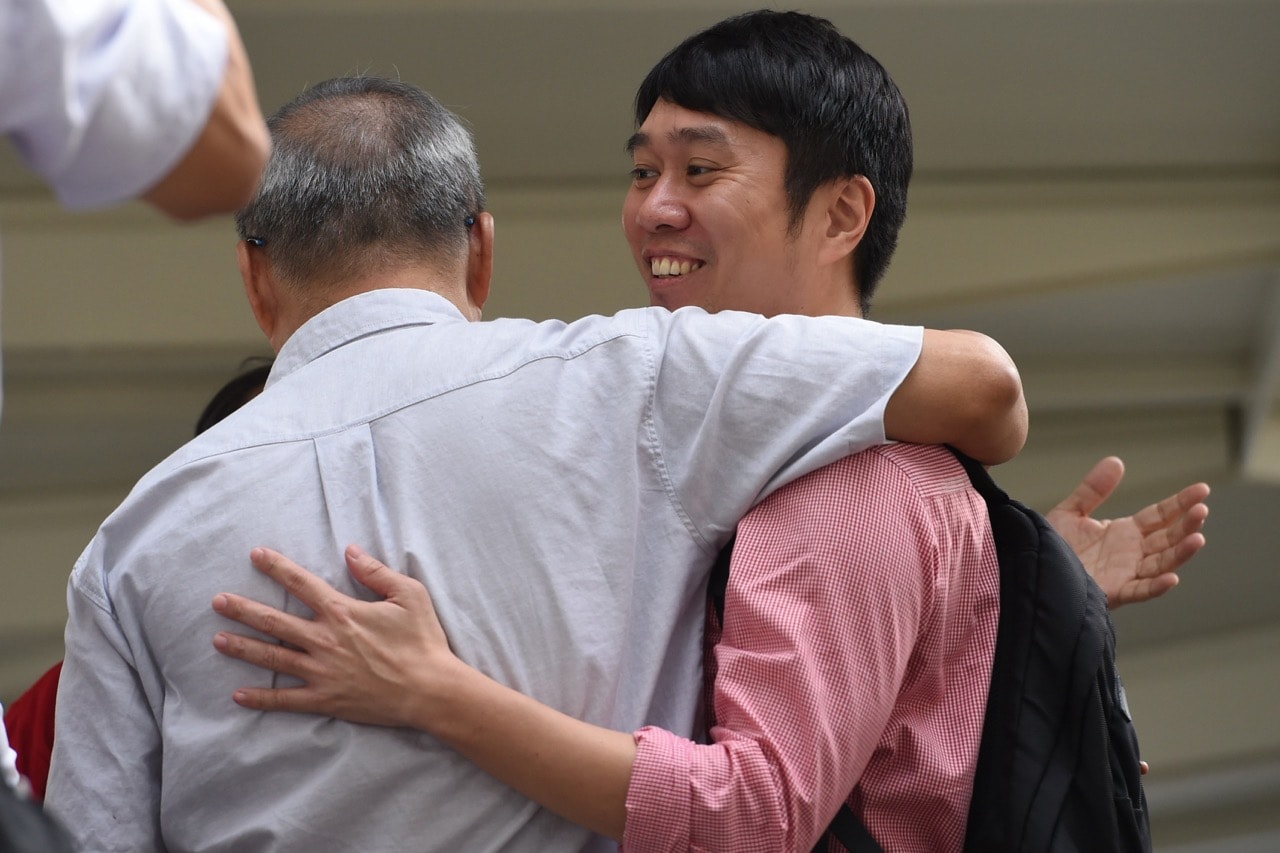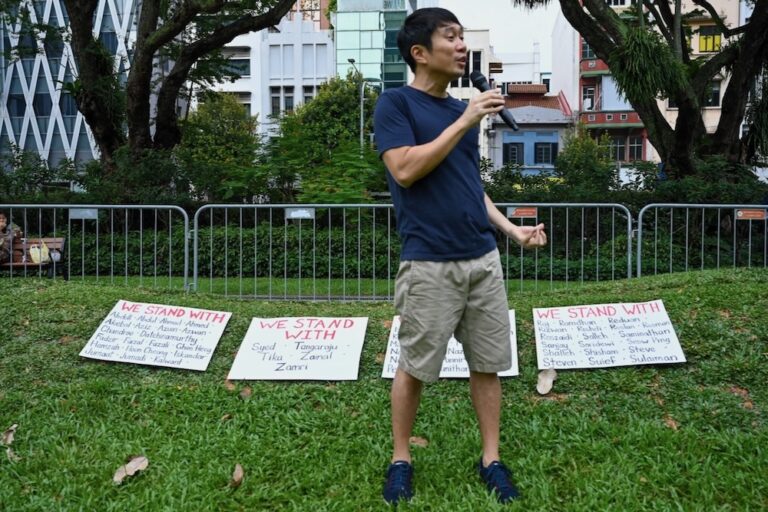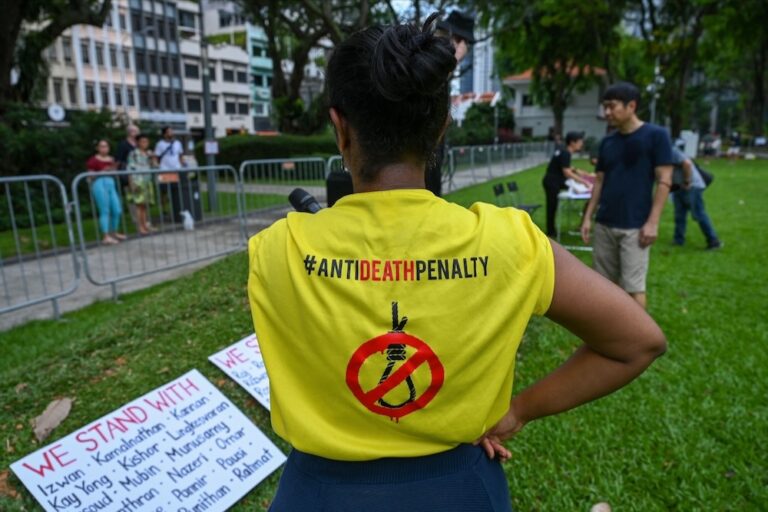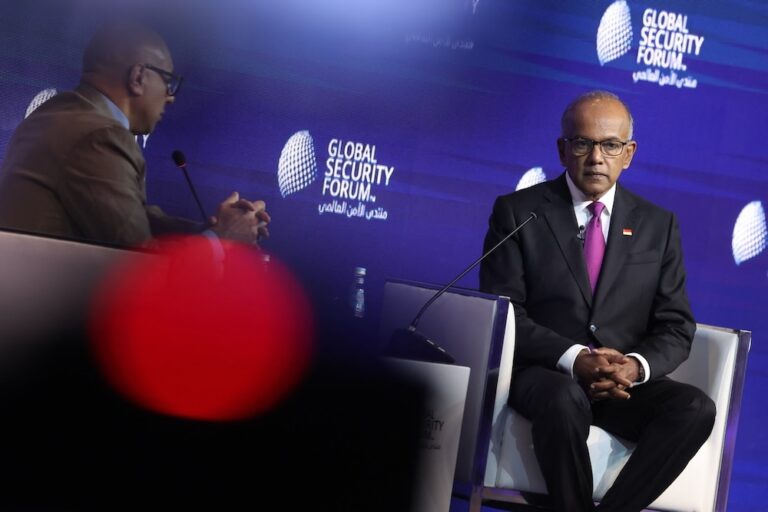Singaporean activist Jolovan Wham is charged with committing seven offences for allegedly organizing illegal assemblies. The police accused him of being a 'recalcitrant' who has "repeatedly shown blatant disregard for the law." In an email interview with the author, Wham explains how Singapore's highly restrictive laws curb free speech.
Singaporean activist Jolovan Wham is charged with committing seven offences for allegedly organizing illegal assemblies. The police accused him of being a ‘recalcitrant’ who has “repeatedly shown blatant disregard for the law.”
What did Wham do that led the police to bring him to court and issue a public statement denouncing him as a recalcitrant?
On July 14, 2017, he and his friends held a candlelight vigil in solidarity with the family of a person facing the death penalty; on June 13, he led a ‘silent protest’ inside a train about the arrest of ‘Marxist conspirators’ in 1987; and on November 26 of last year, he organized an indoor forum that included Hong Kong pro-democracy activist Joshua Wong speaking via Skype.
For Wham and other activists, these activities were peaceful expressions of solidarity and dissent. But for the police, they were apparently acts of public disturbance that undermined order and rule of law.
Wham was briefly detained on November 29, but released after posting bail.
His case reflects the sad state of free speech in Singapore, a highly developed city state where laws and policies discourage the people from expressing contrary views.
Human rights groups in and out of Singapore were quick to declare their support for Wham. Online petitions and letters addressed to the government urged the withdrawal of the cases filed against Wham and the review of regulations that impede the people’s right to free expression and assembly.
In an email interview with the author, Wham explained how Singapore’s highly restrictive laws curb free speech.
“The offence of contempt of court, in which anyone may be prosecuted for commenting on an ongoing court case, needs to be abolished. It leads to self-censorship, as the offence is so broad and vaguely worded that any critical comments about an ongoing court case or about the judiciary could land a person in trouble. Singapore’s Public Order Act – which requires a permit for any public gathering – needs to be amended. Even staging a one-person protest without a permit is illegal. Permits are very rarely granted, even those which involve only one person protesting.”
Wham thinks these harsh laws are being implemented to preserve the hegemony of the ruling party, which has been in power since the 1960s:
“Singapore is a global city and adheres to international norms and standards in many areas of its governance. But it’s unwilling to do so in the area of human rights because the ruling party is afraid of losing its grip on power. For the long term interest of our country, Singapore has to be bigger than just one political party.”
Indeed, the campaign to reform repressive laws necessitates the formation of a broad movement capable of mobilizing public support and persuading the dominant party. Wham underscores the role of young people in this campaign:
“Young people can engage their MPs and policymakers through emails and face-to-face meetings to express their concerns about restrictions on speech. They can start social media campaigns to raise awareness and consciousness.”
And finally, Wham appeals to the international community to continue reminding the Singapore government about the importance of prioritizing human rights in governance:
“Even though Singapore is a rich country with a high human development index, its lack of freedoms is at odds with its status as a first world country. The International community should urge our government to respect our basic human rights to free expression. Singapore has ratified a few human rights treaties. Civil and political rights are principles which also underpin these treaties.”



